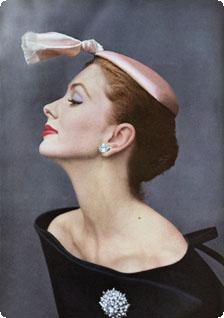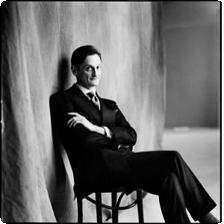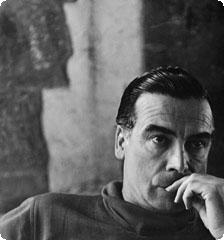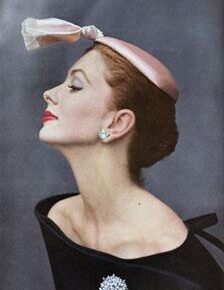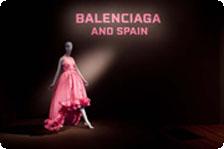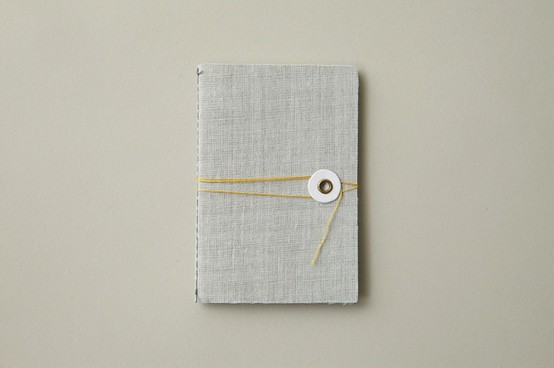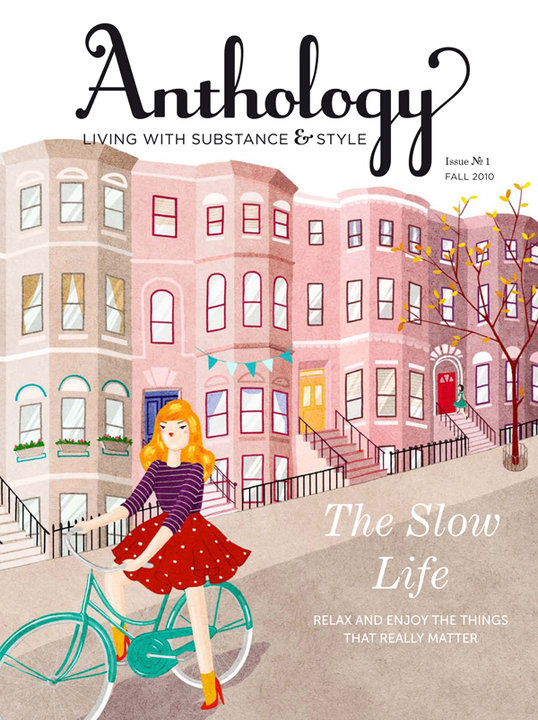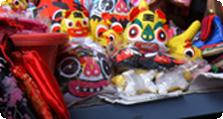Style: Cristóbal Balenciaga captured Spain. In sound. In movement. In color. In spirit. Through Fashion.
by Cynthia English
Balenciaga and Spain, an exhibition curated by Hamish Bowles, European editor at large of VOGUE, featuring nearly 120 haute couture garments, hats, and headdresses designed by Cristóbal Balenciaga, conceived and inspired by Oscar de la Renta, is now open at the de Young Museum of San Francisco.
Spain. Land of paella, tapas, sangria — mouthwatering tastes and textures; Farmers, fishermen — solid toilers of land and seas; the Moors, the Crusaders, the Knights Templar — bold, feverish paths etched along St. James’ Way; Museo del Prado — resplendent vault of Goya, Velazquez and Dali; Royalty and the Church — intrigue within touched every life. Influences ripe with rich turmoil — death, destruction, pious deceit — black, the prevailing color of memory — and yet vibrant, intense, lyrical creativity sprang from the deep well of history and affect, to shape the life and work of Balenciaga (1895–1972).
This exhibition is a journey through time and an incredible tribute to a man who began his life in a small fishing village in the Basque country, whose artistic talents and skills were developed as a young boy by his mother, a dressmaker, and a local tailor under whom he trained. Years later, skills honed, design ethos sculpted and refined by exposure to the finest of art and culture, he was sought after by the wealthy, Spanish royalty and then, after fleeing to Paris from San Sebastian during World War II, by the doyenne of fashion worldwide. These women recognized his unique eye; blending technique and decided point of view. Designs, oft flirtatious, oft reminiscent of his native Spain, always, grand.
From his most modern collection of austere, angled silhouettes to the most romantic of ruffles and peeks of underskirts in color. From beading and embroideries so delicately feminine to sleek folds of stiff sheets of gazar. There is movement and content everywhere in this tightly edited exhibition. Church bells toll, castanets and heels click to the unique pitch of the toque, dialogue and drama reverberate between darkened walls, combining with the pervasive spirit of the women who wore these powerful designs which transformed Fashion history.
Balenciaga, respected and admired by his peers, added a completely new dimension to the wardrobes of the world’s most stylish women. Perhaps you, too, will come away inspired to insert fashion into your everyday life. The exhibition closes on July 4, 2011.
About the de Young
The de Young Museum, designed by Herzog & de Meuron is the fourth most visited art museum in North America. The museum showcases American art from the 17th through the 21st centuries, international contemporary art, textiles, and costumes, and art from the Americas, the Pacific, and Africa.
Golden Gate Park
50 Hagiwara Tea Garden Drive
San Francisco, CA 94118
Hours: Tuesday–Thursday, Saturday and Sunday: 9:30 am–5:15 pm
Friday: 9:30 am–8:45 pm
Closed on Monday
Admission: $10 adults
$7 seniors
$6 youths 13–17 and students with a college I.D.
Members and children 12 and under are free
The first Tuesday of every month is free
Surcharge applies to special exhibitions
Information: 415.750.3600
de Young Museum
A symposium organized by the Fine Arts Museums of San Francisco focused on the influence of Spanish culture on the work of Balenciaga took place at the de Young on March 26 and featured speakers Hamish Bowles; Pamela Golbin, chief curator of the Musée de la Mode et du Textile at the Louvre; Miren Arzalluz, curator of the Balenciaga Foundation and author of Cristóbal Balenciaga: La forja del Maestro (1895–1936); and Lourdes Font, associate professor at the Fashion Institute of Technology. The Balenciaga symposium is available for viewing via the Internet on FORA.TV for $9.95 for unlimited, on demand viewing during the run of the exhibition.
Discover more from Tango Diva
Subscribe to get the latest posts sent to your email.
